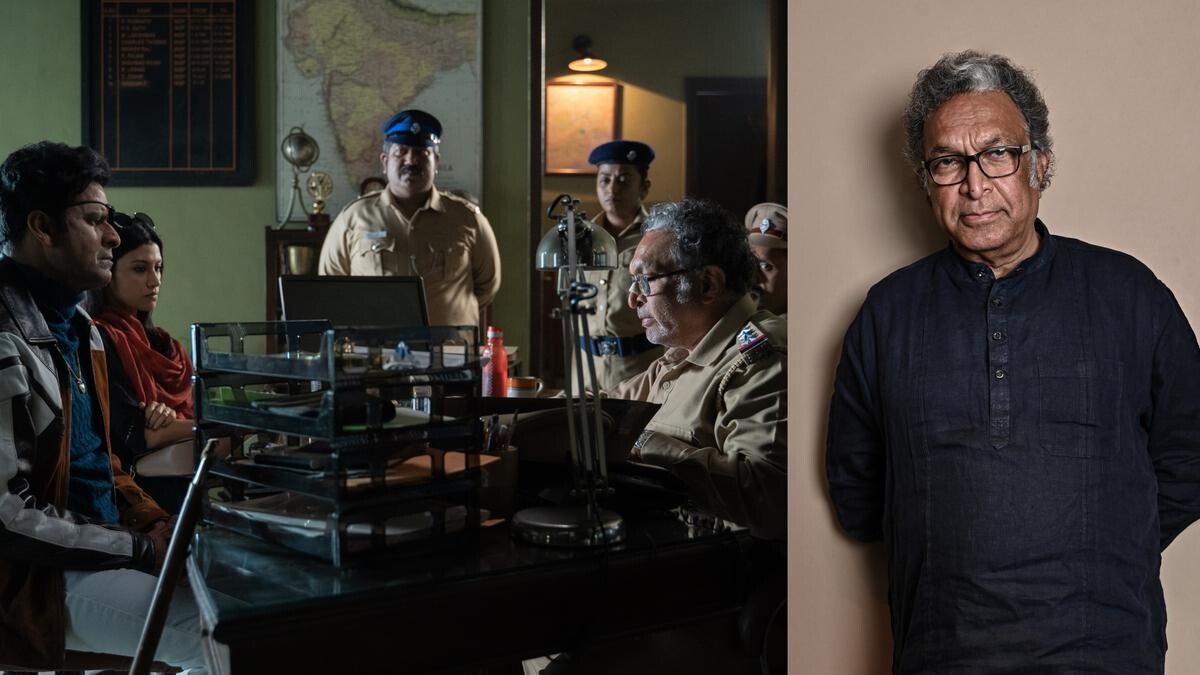
With well over 700 movies straddling a career that is close to spanning four decades, Nasser’s filmography reads like a map charting the vast terrain of Indian cinema. From the roles of a foot soldier to that of a chief minister, Nasser has embodied characters as varied as a mad scientist and a spiritual guru. His recent portrayal of a police officer in Netflix’s “Killer Soup” feels almost like a nod to a familiar attire, for it isn’t his inaugural turn in khaki. Recalling his influential role as an Assistant Commissioner of Police in the critically acclaimed “Nayakan,” Nasser has reprised the guise of a policeman in several cinematic ventures, including “Pudhiya Mugam,” “Hey Ram,” and humorously in “Vettai.” In “Killer Soup,” however, there’s an opportunity to explore deeper dimensions.
“I don’t believe in having my own style,” declares Nasser, discussing his latest project, where he has opted for a fresh approach towards an oft-portrayed character. The decision to dissociate the cop’s profession from his true nature in the narrative required thoughtful characterization. “I took the cop part of the character away from the narration and characterized him based on what makes him… him,” Nasser explains. This interpretative sensitivity aligns with the director’s vision, contributing to the success of their collaboration.
Crafting compelling characters isn’t always straightforward, especially when faced with simplistic character briefs. Nasser voices his dissatisfaction with mainstream cinema’s inclination toward two-dimensional portrayals, underscoring the importance of an actor’s interpretative input. “A rich and strict father… that’s literally the brief I’m given,” he cites as an example. For Nasser, the backstory—how the character amassed his wealth, for instance—is crucial in informing a more nuanced performance.
While eager to embrace the directorial guidance for character foundation, Nasser upholds the belief that space for creative interpretation should exist within the collaborative dynamics of filmmaking. He views his craft as one that must be synchronized with both the director’s narrative vision and the performances of fellow actors, particularly highlighting the necessity of fitting into a shared creative tempo.
The veteran actor holds “Killer Soup” lead actors Konkona Sensharma and Manoj Bajpayee in high regard, commending their thorough preparation and work ethic. The star-studded cast and the dedication behind the production have made the project standout in Nasser’s extensive career.
Nasser has also partaken in the pan-Indian film movement before it gained its current prevalence. He reminisces about the sweeping success of the Baahubali series, which set precedence for nationwide acclaim. “Killer Soup” interestingly bridges the gap between regional and national audiences by situating its narrative in a fictional town in Tamil Nadu with a mix of Hindi and Tamil dialogue. Nasser attributes the ascent of content-driven films to this trend-blurring phenomenon, as opposed to the mere union of big-budget films.
Throughout his discussion, Nasser dispels any notions of grandiosity about his trans-industry work, humbly reflecting on his early foray into Hindi cinema post the release of “Nayakan.” Despite language barriers, his commitment to learning and performing in varying tongues underscores the professionalism that has defined his versatile career.
“Killer Soup,” which is now available for streaming on Netflix, represents a convergence of talent and narrative that epitomizes Nasser’s ethos as an actor. Far from resting on the laurels of a long and storied career, Nasser continues to reinvent himself with every role, seeking to infuse each character with authenticity and vigor, dispelling the perceived curse of typecasting one exceptional performance at a time.










